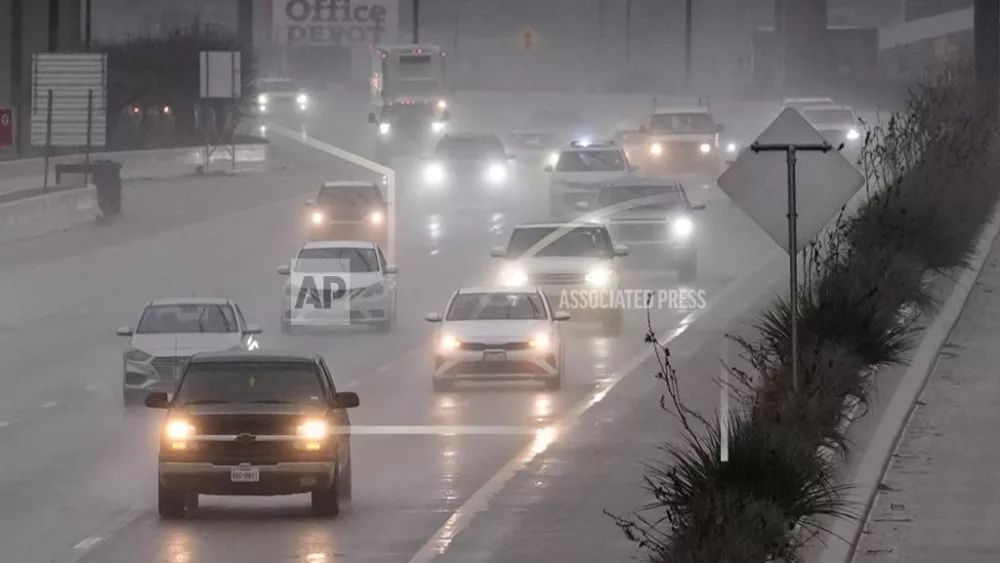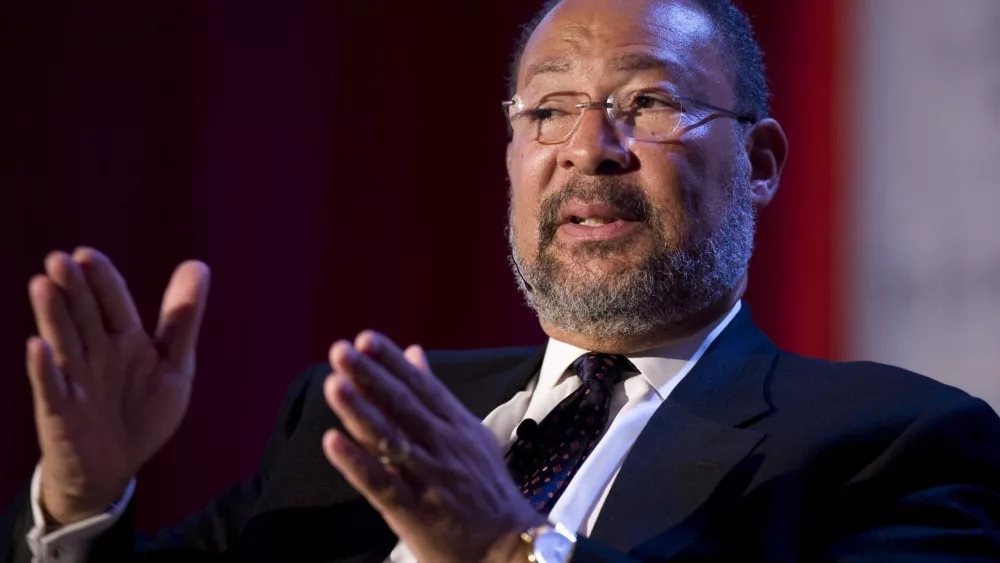TOPEKA, Kan. (AP) — Kansas is no longer enforcing a 3-year-old law making it a felony to impersonate election officials as it faces a legal challenge from critics who argue that the law has hindered efforts to register new voters.
Attorneys for the state and groups suing over the law agreed on stopping its enforcement, and District Judge Teresa Watson in Shawnee County, home to the state capital of Topeka, issued an order earlier this week ratifying their agreement. Her order will remain in effect at least until another court hearing after the November election.
The law made “falsely representing” an elections official punishable by up to 13 months in prison for a first-time offender, though two years’ probation would have been the most likely sentence. The crime includes causing someone to believe another person is an election official. The Republican-controlled Legislature enacted the law in 2021 by overriding a veto by Democratic Gov. Laura Kelly.
The groups challenging the law argue it’s so vague that volunteers who register voters could face criminal charges if someone mistakenly believes they are election officials, even if those volunteers are clear that they aren’t verbally, in writing or on signs. State officials have scoffed at that argument, but groups curtailed their activities, including one involved in the lawsuit, Loud Light, which seeks to register young people.
“We are fired up and ready to register thousands of young Kansans to vote again,” Davis Hammet, Loud Light’s president, said in a statement Wednesday, describing the law as a ”voter registration suppression scheme.”
The law was among a series of measures tightening election laws approved by GOP legislators who said they were trying to bolster public confidence in elections. There’s no evidence of significant fraud, but baseless conspiracies continue to circulate because of former President Donald Trump’s false claims that the 2020 presidential election was stolen from him.
This year, GOP lawmakers hoped to settle the groups’ legal challenge by rewriting the law so that someone would have to intentionally impersonate an election official to be guilty of a crime. They had the backing of the state’s top elections official, Secretary of State Scott Scwhab, a Republican who has vouched for the integrity of state elections.
Schwab spokesperson Whitney Tempel said the goal was “reducing voter confusion,” but lawmakers tied the change to another measure limiting the spending of federal funds on state elections. Kelly vetoed it, and Republicans couldn’t override her.
“The recent temporary injunction issued underscores our concerns and continues to highlight the need to clarify this law,” Tempel said in a statement.
Besides Loud Light, the other groups involved in the lawsuit are the League of Women Voters of Kansas, the Kansas Appleseed Center for Law and Justice and the Topeka Independent Living Resource Center, which advocates for voters with disabilities.
Watson initially refused in 2021 to block the law’s enforcement and a state Court of Appeals panel later dismissed the case. But in December, the Kansas Supreme Court revived it, saying the law is vague enough for the groups to contest it.
In May, in a follow-up ruling that involved challenges to other election laws, the Supreme Court directed Watson to reconsider blocking the anti-impersonation law.
But that received far less attention than what the Supreme Court said about voting rights generally.
An article of the state constitution allows people 18 and older to vote, it requires “proper proofs” of their eligibility. A 4-3 majority of the Supreme Court declared that the constitution’s Bill of Rights doesn’t protect voting as an “inalienable natural” right — an idea the dissenters passionately rejected — significantly lessening the chances that legal challenges to restrictions will succeed.
Brought to you by www.srnnews.com







